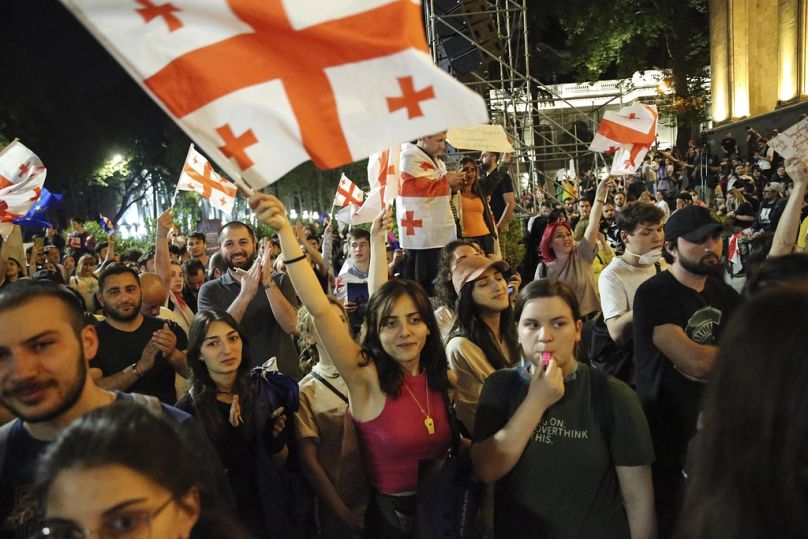EU Commission President Ursula von der Leyen has said that Georgia is at a crossroads, as the country grapples with protests against government plans to introduce a foreign influence law which critics fear could be used to stifle the press.

EU Commission President Ursula von der Leyen has joined the bloc’s foreign policy chief in condemning police violence in Georgia.
Writing on X, formerly Twitter, von der Leyen said: “I am following the situation in Georgia with great concern and condemn the violence on the streets of Tbilisi.
“The Georgian people want a European future for their country. Georgia is at a crossroads. It should stay the course on the road to Europe.”
Georgia has been rocked by anti-government protests against a new foreign influence law, which critics fear could be used to limit press freedoms.
The European Union’s High Representative for Foreign Affairs and Security Policy Josep Borrell has also strongly condemned the violence.
Thousands of people took to the streets of the Georgian capital Tbilisi on Tuesday, as the country’s parliament debated the second reading of a highly controversial foreign influence law.
Riot police forcibly dispersed the crowds adorned with Georgian and EU flags using rubber bullets, tear gas, stun grenades and water cannons.

Several protesters were arrested and beaten, including leading opposition politician Levan Khabeishvili, who posted a photo of himself on X showing severe facial injuries.
“I strongly condemn the violence against protesters,” said Borrell. “I call on [Georgian] authorities to ensure the right to peaceful assembly.”
Using force to “suppress” protesters is “unacceptable”, he added.
Dubbed the “Russian law”, the draft legislation requires media and non-commercial organisations to register as being under foreign influence if they receive more than 20% of their funding from abroad.
Critics fear it could be used to stifle the press and non-governmental organisations.
Similar legislation adopted in Russia was used to help silence voices and groups critical of the Kremlin.
Supporters of the bill say it is necessary to ensure Georgia’s national sovereignty.
Georgia’s President Salome Zourabichvili took to social media to criticise the police response to Tuesday night’s demonstrations.
She described the police violence as “totally unwarranted, unprovoked and out of proportion”.
Zourabichvili has vowed to veto the bill if approved by parliament.
Borrell has previously warned the legislation, if adopted, could scupper the small country in the South Caucasus’ bid to enter the EU.
Georgia has long wanted to join the bloc. In November 2023, the European Commission issued an official recommendation to grant candidate status to Georgia, though it still has a long road ahead to accession.
Support for EU membership among Georgia’s 3.7 million citizens is as high as 81%, according to a 2022 poll by the National Democratic Institute.



